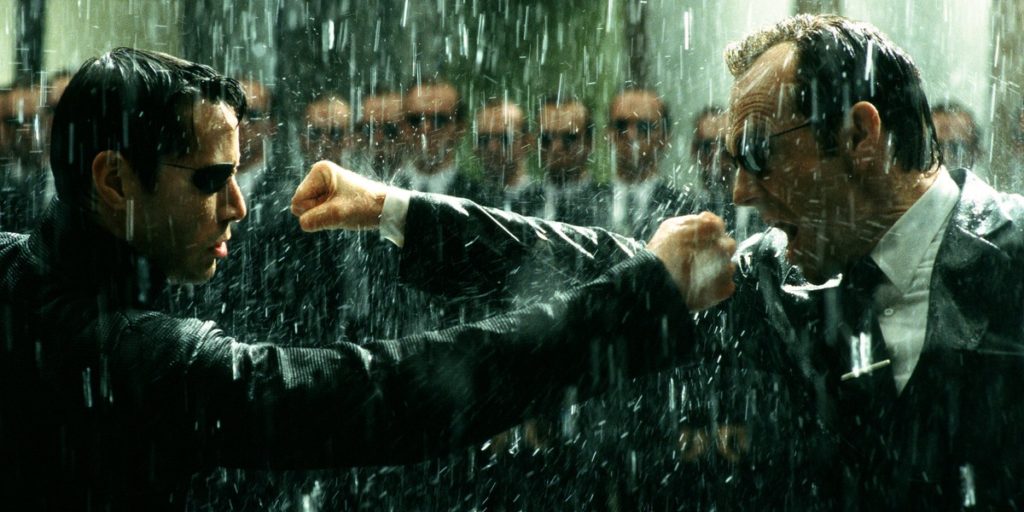How editing can refocus a bad film franchise
Topher Grace, who starred in That ‘70s Show but who I mostly recognise from BlackkKlansman and the worst of the Spider-Man films, has edited together a trailer for all of the Star Wars films. It’s pretty brilliant.
Even more brilliantly, he once edited the 3 Star Wars prequels into a single hour-and-a-half film. He did this by cutting 90% of The Phantom Menace, almost all of the galactic politics, and anything else that did not directly push forward the story of the fall of Anakin Skywalker. The film was shown exactly once to an audience of Grace’s friends and some online writers, and then it was allegedly destroyed to ensure that it was never accidentally leaked to the public, thus sparing Grace the legal wrath of the House of Mouse.
Grace has edited other films too. After filming BlackkKlansman, where he played real life horrible person David Duke, former head of the KKK, Grace apparently calmed his nerves by turning the Hobbit trilogy into a single film.
The Hobbit films are terrible. The filmmakers turned a 300-page children’s story into 9 hours of ropey CGI, infernal filler, and ill-advised love triangles. There is a whole list of reasons why the Hobbit films turned out this way, and if you’re interested you should probably check out Lindsay Ellis’ excellent videos on the subject.
It’s not a new idea that some franchises are largely filler which would be massively improved by editing down to single films. Note that I am not talking about every trilogy of films here; the aforementioned Spider-Man 3, terrible though it was, would not have been improved by merging it with Spider-Man 2 because they are entirely different stories that share a world. I am talking specifically about films that share a story, but that are forced to pad out that story so that the studio can collect profits from multiple films.
The Matrix trilogy is a great example of this. The first film took the world by storm back in 1999. It redefined what we look for in an action film, reshaped the concept of an action hero, revitalised Keanu Reeves’ career, and was simply a stunning piece of cinema.
The Matrix Reloaded was overblown. Much like the Phantom Menace, it was popular enough on release, but (as with Phantom Menace) time has not been kind. The CGI dated fast, and the story ends up in its own backside with the reveal of the Architect—a character who was potentially interesting but whose critical expository speech read like a first-year philosophy student essay.
A year after that, and The Matrix Revolutions barely scraped half of the box office takings of Reloaded. The third film was all over the place. To its credit, it removed some of the cod-philosophy, but replaced it with unnecessary padding and action sequences that made very little sense. To make matters worse, whole chunks of vital plot for both sequels were split out into other media, including the fun but patchy Animatrix shorts and the awful Enter the Matrix video game.
It could have been different, though, had Warner Bros not been so desperate to keep the Matrix money tap running and thus not compromised the artistic integrity of the story. The overarching plot of Reloaded and Revolutions is not intrinsically bad. There’s a good film in there, spread between the 2 sequels.

Cut out the following elements: the Zion party, everything about the Merovingian except maybe an excuse to have a fight in his mansion, the Twins, about half of the Architect’s speech, the Train Man, the Club Hell sequence, Trinity’s interminable death speech, and some of the superfluous characters (Niobe, Persephone, the Zion council, the Kid, Zee). Trim down the more excessive fights, mostly in Revolutions (the battle for Zion, Neo and Agent Smith at the end), but also the Burly Brawl and the car chase from Reloaded. You could relatively easily achieve a run time of around 2 hours with a focussed, interesting, action-packed story.
To paraphrase the Matrix sequels, this has all been done already, of course. There are various fan edits out there for all the series I’ve listed and more. But even the best fan edits suffer for a number of reasons: they don’t always have the technical equipment (or skill) to make a professional grade edit, they are hampered by only being able to use what is in the public view (no amount of editing will fix Hayden Christensen’s acting), and any attempts to release the edits are always under threat of legal action from the studios.
The fact is that, while fans will always edit their favourite films, it’s a shame that they are being left to fix franchises that are so clearly broken in the name of chasing a few dollars more.
